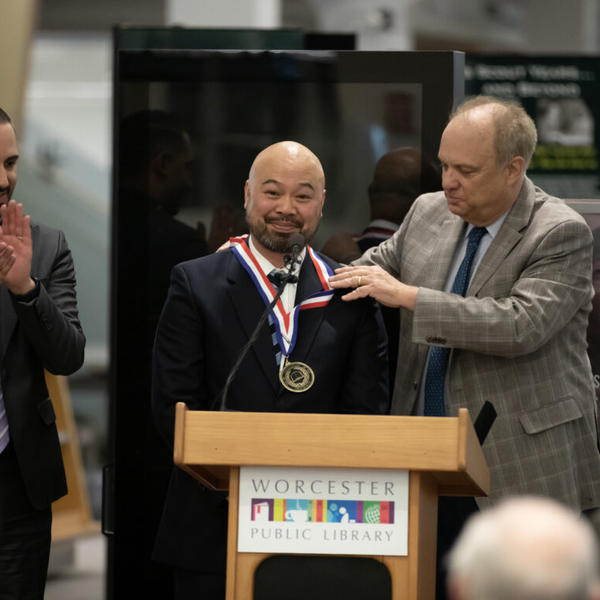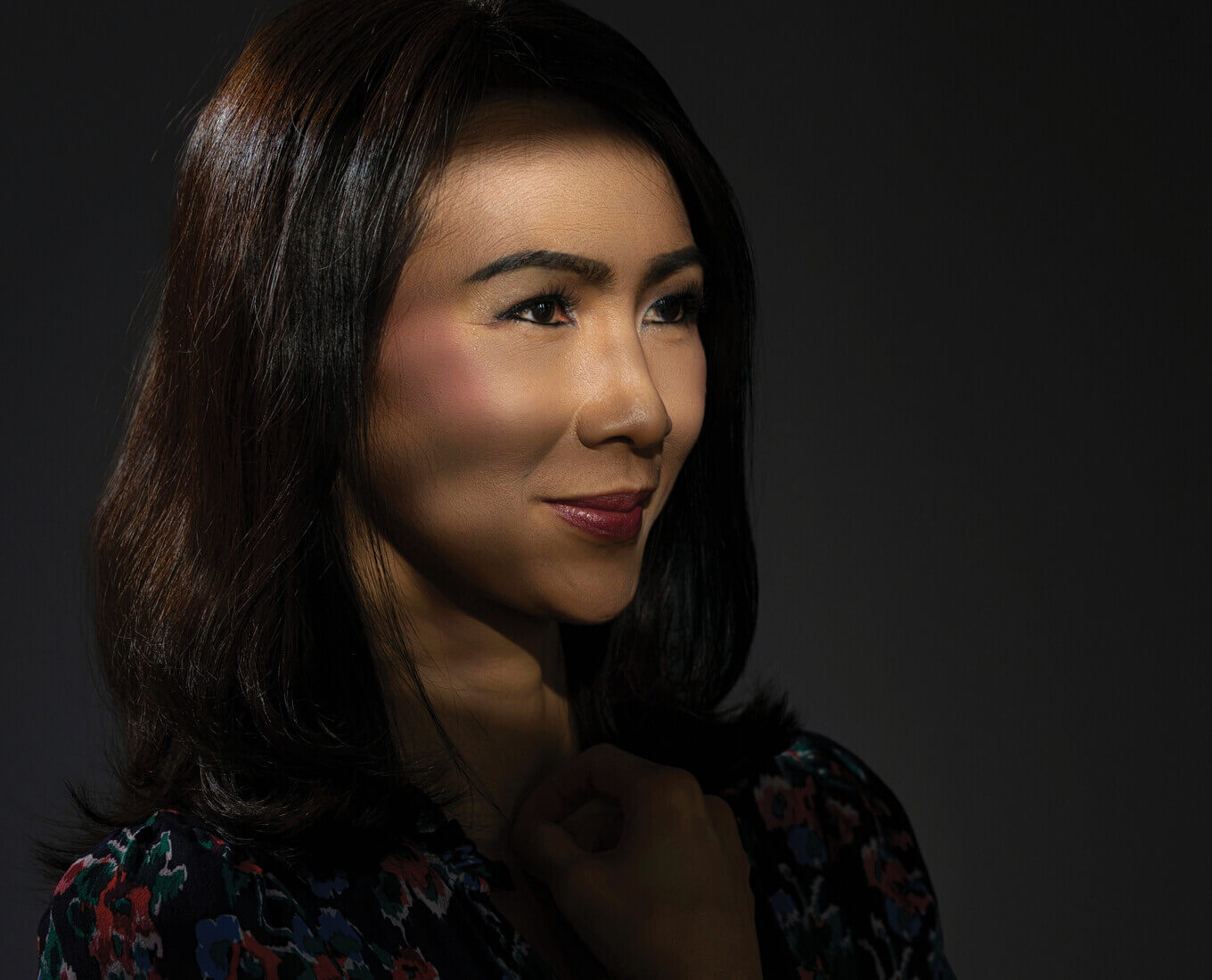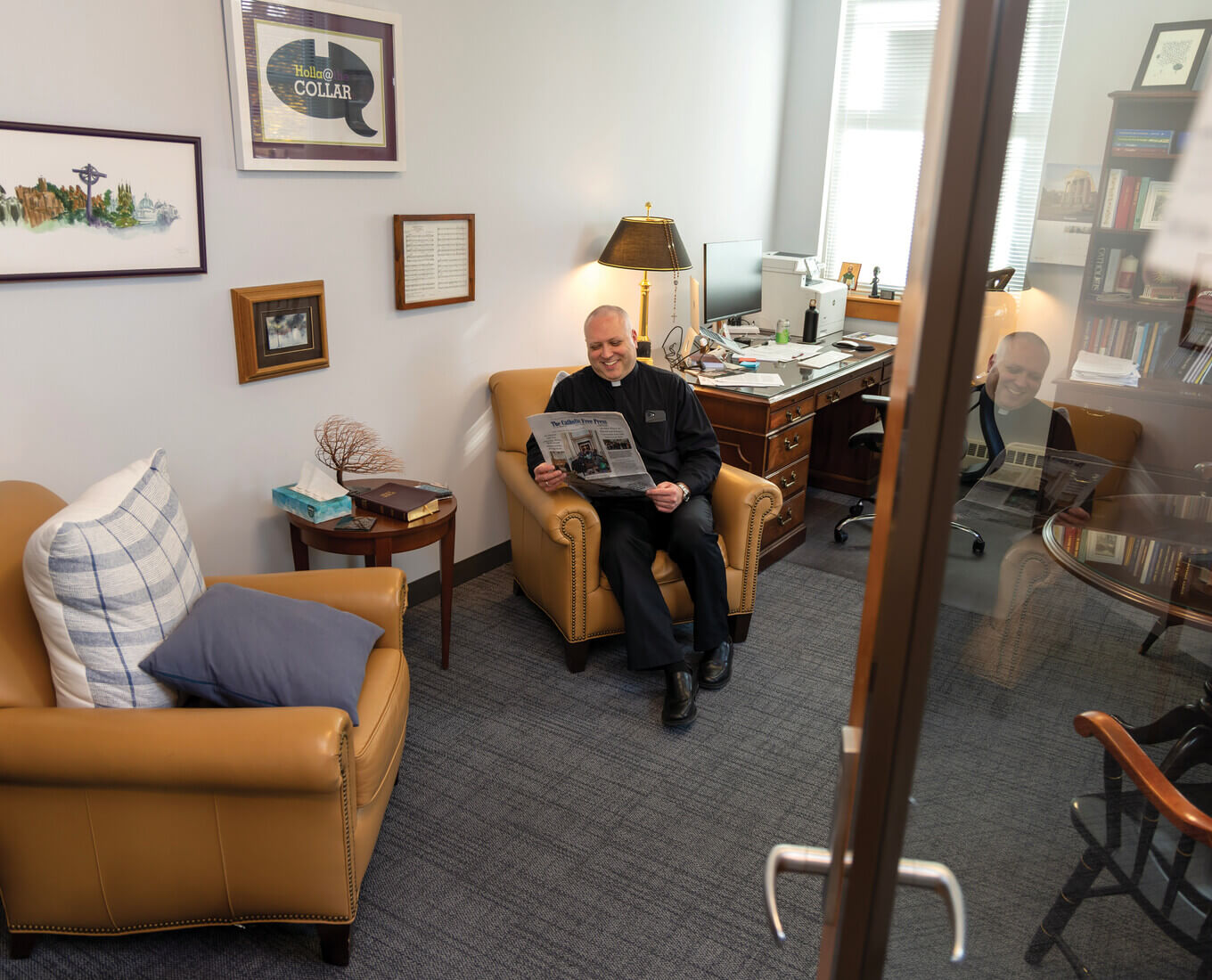Technology continues to change the way humans live, communicate and even write, the latter thanks to ChatGPT, the news-making artificial intelligence natural language processing tool.
And while AI and technology advances like ChatGPT could appear as a threat to literature and its works, the opposite is true, according to poet Oliver de la Paz, associate professor of English at the College of the Holy Cross and poet laureate for the city of Worcester. Technology has led to the democratization of poetry’s accessibility, he said, not its demise, and should be embraced for the opportunities it affords artists to more broadly share their work.
"Poetry’s increase in popularity right now may have to do with the DIY component that new technology has provided folks," said de la Paz, a poet and educator who joined the Holy Cross faculty in 2016.
Traditionally, poets did not have a platform to share their work outside of public readings because a select few institutions and printing presses controlled that access. Today, social media channels including TikTok and Instagram Reels allow self-made and self-published poets to post videos of themselves presenting their work at will.
He points to Canadian poet and author Rupi Kaur as an example of a previously unknown writer whose viral Instagram presence launched her in front of young audiences; her "Milk and Honey" collection of prose has been read by millions throughout the globe.
The rise of young adult novels-in-verse (poetry written in longer form) from authors including Kwame Alexander has increased interest in the art and showcases the fact that young readers want to consume language in new ways.
"There is something attractive about the spaciousness of a poem on a page and the rate at which you can read it. It’s gratifying for young readers or a particular kind of reader and encourages them to reread the text over and over, finding something new in the words and meaning each time," de la Paz said.
Technology, social media channels and novels-in-verse make poetry more attractive and accessible to communities who might not otherwise think their voices or experiences are represented, he said.
"It is widening the canvas for readers who are bi- or multilingual to read and tell their stories in a format that celebrates the community," he said. "We are very literary, maybe not in the most traditional sense, but we are a text culture. It is everywhere – but it is taking new forms."
While new forms can include using ChatGPT to write a poem, de la Paz is not concerned about artificial intelligence replacing human poets.
"I consider it a new tool at the disposal for artists trying to figure out how to generate or inspire creativity," he said. "But at its core, poetry is an art and art include human drama and emotion that ChatGPT cannot produce."
Poetry More Accessible Today Thanks to Technology

College of the Holy Cross Associate Professor of English Oliver de la Paz was installed as the city of Worcester’s poet laureate in March 2023.
Oliver de la Paz, Worcester’s poet laureate, thinks that the increase in poetry’s popularity is thanks to, not in spite of, technology.
Read Time
2 Minutes

